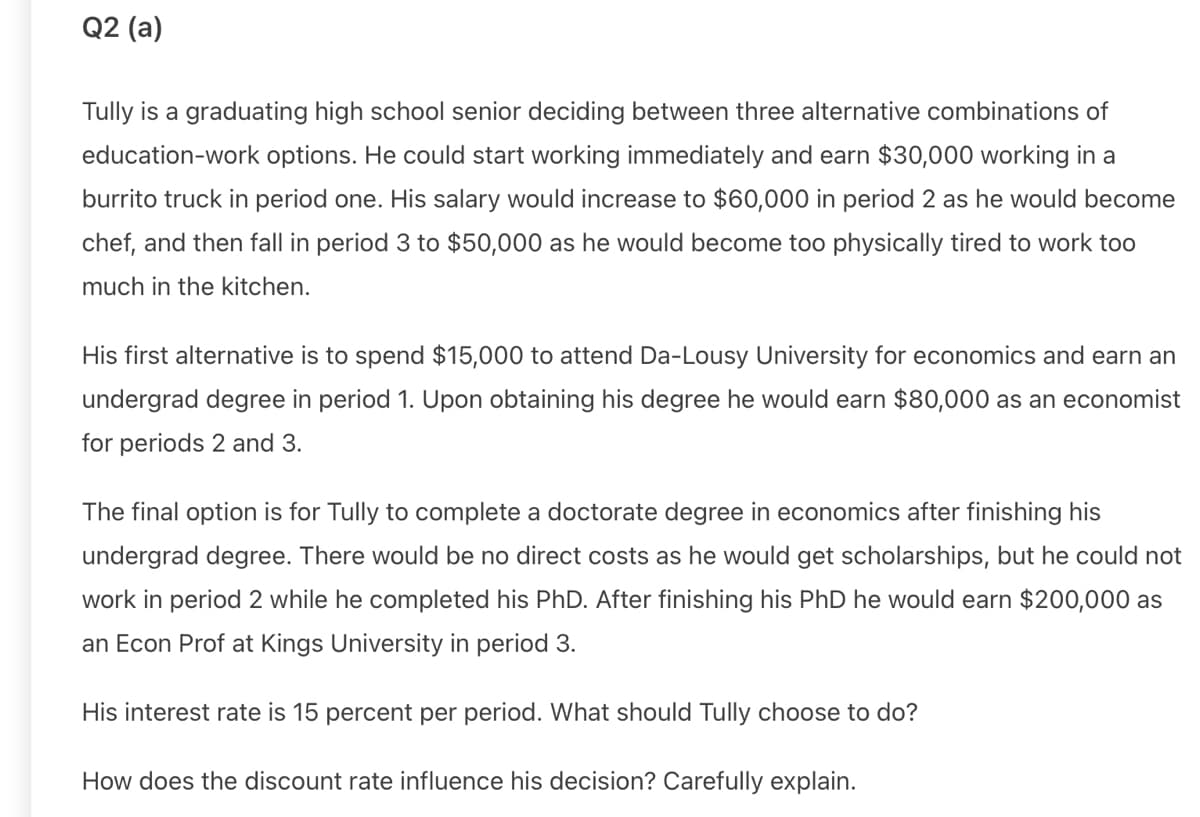The final option is for Tully to complete a doctorate degree in economics after finishing his undergrad degree. There would be no direct costs as he would get scholarships, but he could not work in period 2 while he completed his PhD. After finishing his PhD he would earn $200,000 as an Econ Prof at Kings University in period 3. His interest rate is 15 percent per period. What should Tully choose to do? How does the discount rate influence his decision? Carefully explain.
The final option is for Tully to complete a doctorate degree in economics after finishing his undergrad degree. There would be no direct costs as he would get scholarships, but he could not work in period 2 while he completed his PhD. After finishing his PhD he would earn $200,000 as an Econ Prof at Kings University in period 3. His interest rate is 15 percent per period. What should Tully choose to do? How does the discount rate influence his decision? Carefully explain.
Chapter2: The Deduction For qualified Business Income For Pass-through Entities
Section: Chapter Questions
Problem 3DQ
Related questions
Question

Transcribed Image Text:Q2 (a)
Tully is a graduating high school senior deciding between three alternative combinations of
education-work options. He could start working immediately and earn $30,000 working in a
burrito truck in period one. His salary would increase to $60,000 in period 2 as he would become
chef, and then fall in period 3 to $50,000 as he would become too physically tired to work too
much in the kitchen.
His first alternative is to spend $15,000 to attend Da-Lousy University for economics and earn an
undergrad degree in period 1. Upon obtaining his degree he would earn $80,000 as an economist
for periods 2 and 3.
The final option is for Tully to complete a doctorate degree in economics after finishing his
undergrad degree. There would be no direct costs as he would get scholarships, but he could not
work in period 2 while he completed his PhD. After finishing his PhD he would earn $200,000 as
an Econ Prof at Kings University in period 3.
His interest rate is 15 percent per period. What should Tully choose to do?
How does the discount rate influence his decision? Carefully explain.
Expert Solution
This question has been solved!
Explore an expertly crafted, step-by-step solution for a thorough understanding of key concepts.
Step by step
Solved in 2 steps

Knowledge Booster
Learn more about
Need a deep-dive on the concept behind this application? Look no further. Learn more about this topic, finance and related others by exploring similar questions and additional content below.Recommended textbooks for you



